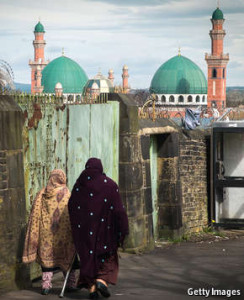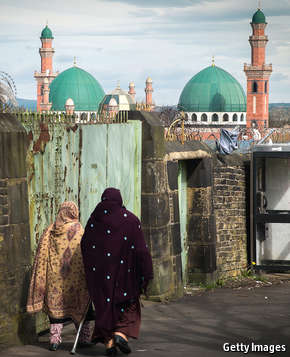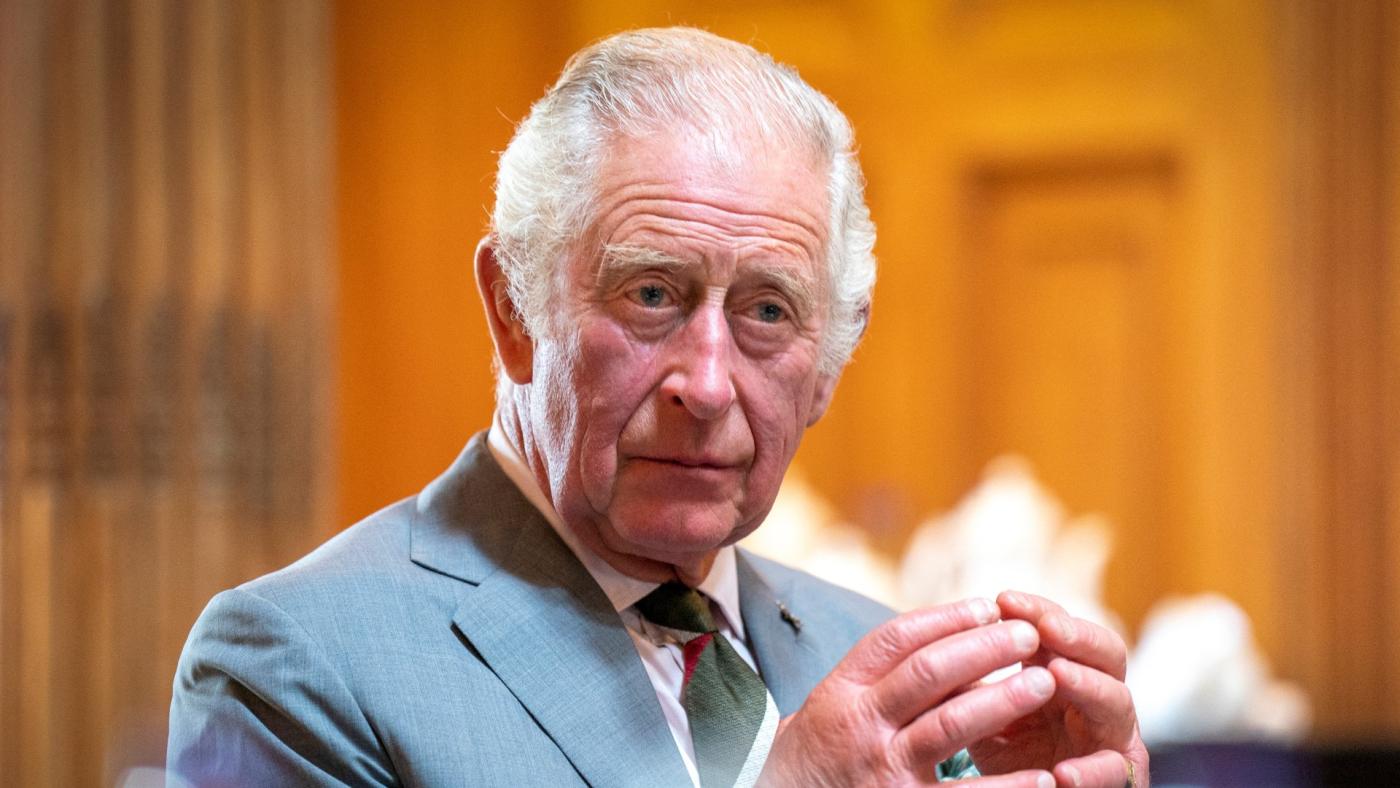By the bloody standards of Middle Eastern sectarianism, it is a slight affair. On the fourth day of Ramadan, dawn worshippers in Bradford found the wall of their husseiniya, or Shia mosque, daubed with the word “KAFIR” (infidel). But flare-ups, once rare, between Britain’s 400,000-odd Shias and 2.3m Sunnis are on the rise.
Safdar Shah, one of the husseiniya’s founders, says that 30 years ago, when most of the city’s Sunnis and Shias arrived from the Pakistani side of Kashmir, they often prayed together. But over the past year leaflets denouncing Shias have circulated on city buses, and Sunnis have launched a boycott of two Shia-owned takeaways in Little Horton, a neighbourhood where over half the population is Asian. A flurry of tweets enjoin Sunnis to “stay away from Shia”. Community elders fear the identity politics sweeping the Middle East are seeping into Britain’s school playgrounds, prisons and mosques.
Opinion is divided over the cause of the surge in identity politics. “When people are unhappy, have no jobs and are disaffected they need a pastime,” says Nussrat Mohammed, a Labour councillor. Unlike the gleaming glass towers of nearby Leeds, Bradford’s squat skyline of sandstone seems stuck in the time-warp of the Industrial Revolution (bar the minarets). Residents accuse

the council, the government and above all Britain’s sometimes histrionic media for portraying the city as a trough of extremism.
Others say preachers stoke the division. Most of the country’s 27 Muslim seminaries are Deobandi, a purist form of South Asian Islam. Once a minority among Pakistanis in Britain, with the young this puritanical tendency is gaining ground against the Barelvi tradition, whose colourful customs reflect the popular religious practices of Pakistan.
Sectarian battles in Pakistan and the Gulf ripple back to Bradford. Outside the town hall, Sunnis and Shias have staged protests against rival factions in Syria’s civil war. “The politics there are played out here,” says Amjad Pervez, a leading local businessman, who worries that Kashmiri politicians join the campaign trail in Bradford’s elections. “The monsters fed from abroad have grown too big to be handled by one organisation—even the British government,” he says.






